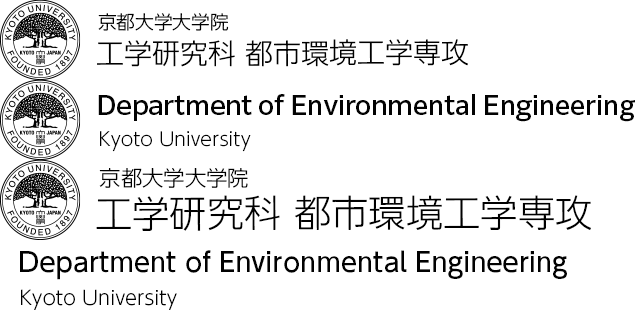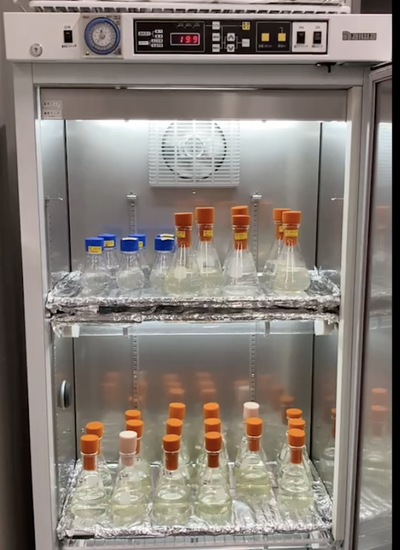Urban Sanitary Engineering
We take two approaches for this ultimate goal with special emphasis on health risks: laboratory experiments and environmental planning. The laboratory experiments include the evaluation of the safety of drinking water with a special focus on micropollutants (e.g., endocrine disrupting chemicals and carcinogenic compounds) and the development of advanced drinking water treatment systems. The studies on environmental planning include the integrated river basin management considering both qualitative and quantitative aspects of water supply, and the incorporation of the viewpoints of citizens in environmental planning using psychological analysis.
Academic Staff
Sadahiko ITOH
 Professor (Graduate School of Engineering)
Professor (Graduate School of Engineering)
Research Topics
Our life and health are threatened by various types of environmental problems. My ultimate goal is to provide engineering solutions to protect our life and health from these environmental risks. My specific research areas are: evaluation and control of the safety of drinking water, establishing water supply system corresponding to the change of water demand from a viewpoint of depopulation, methods of communication with consumers on water tariff increase.
Contacts
Room 232, C-1 Katsura Campus
Room 231 (C1-2), C-cluster, Katsura Campus
TEL: +81-75-383-3254
FAX: +81-75-383-3256
E-mail: itoh.sadahiko.4u![]() kyoto-u.ac.jp
kyoto-u.ac.jp
Tomohiro NAKANISHI
Assistant Professor (Graduate School of Engineering)
Research Topics
My main research topics aim to ensure the microbial safety of drinking water.
Specific topics:
- Development of a comprehensive detection method for pathogenic bacteria in water sources
- Evaluation of microbial community behavior in water treatment processes
- Control of re-growth problem of opportunistic pathogens in water distribution & plumbing systems
Contacts
Room 231 (C1-2), C-cluster, Katsura Campus
TEL: +81-75-383-7502
FAX: +81-75-383-3256
E-mail: nakanishi.tomohiro.8r![]() kyoto-u.ac.jp
kyoto-u.ac.jp
Midori YASUI
Assistant Professor (Graduate School of Engineering)
Research Topics
Contacts
Room 233 (C1-2), C-cluster, Katsura Campus
TEL: +81-75-383-7503
FAX: +81-75-383-3256
E-mail: yasui.midori.5f![]() kyoto-u.ac.jp
kyoto-u.ac.jp
Research Topics
Management of drinking water quality in small-scale water supply system
Small-scale water supply systems are becoming increasingly important under depopulation society in Japan. These facilities serve water to less than 100 people and are not covered by the Water Supply Law and are not obligated to comply with drinking water quality standards. Such small, locally managed facilities often lack adequate water treatment and disinfection. This study aims to provide an approach to ensure safe drinking water with limited information on water quality in such areas. Furthermore, we also aim to create an appropriate framework of water quality examination such as measuring parameters and frequency of measurement, depending on the type of raw water and water treatment or disinfection methods in the target area.
Figure 1. Typical water source in small-scale water supply systems
Advanced microbial safety management of drinking water
Although the microbiological safety of tap water is ensured by chlorination, it is by no means sterile. Recent situations such as changes in raw water quality due to global warming and climate change, aging of water pipes, and declining water demand lead to a favorable environment for microorganisms in the water supply system, and particular attention must be paid to the occurrence of pathogens. Our laboratory works on microbiological safety and stability in the entire water supply system, i.e., water source, water treatment plant, and water distribution systems.
More specifically, we are working on 1) identification, monitoring, and control of microbial communities and pathogenic bacteria by using molecular techniques such as PCR and next-generation sequenging, 2) leakage of microbes from biologically activated carbon filter in water treatment processes, and 3) re-growth problems of opportunistic pathogens in building plumbing systems.Figure 2. Laboratory-scale reactors mimicking water plumbing pipes
Identification of disinfection byproducts precursors and their rapid detection
During the water treatment process, chemicals can be converted into harmful disinfection byproducts (e.g., haloacetic acid) or into substances responsible for chlorinous odors. In this study, we use fractionation techniques and accurate mass spectrometry to characterize the chemical properties and molecular structure of haloacetic acid precursors, especially those derived from algae in source water.
This research is being conducted as a collaborative research with the laboratory of Environmentally-friendly Industries for Sustainable Development, Graduate School of Global Environmental Studies, Kyoto University.
Figure 3. Incubator of algae "Raphydophytes", a precursor of disinfection byproducts



